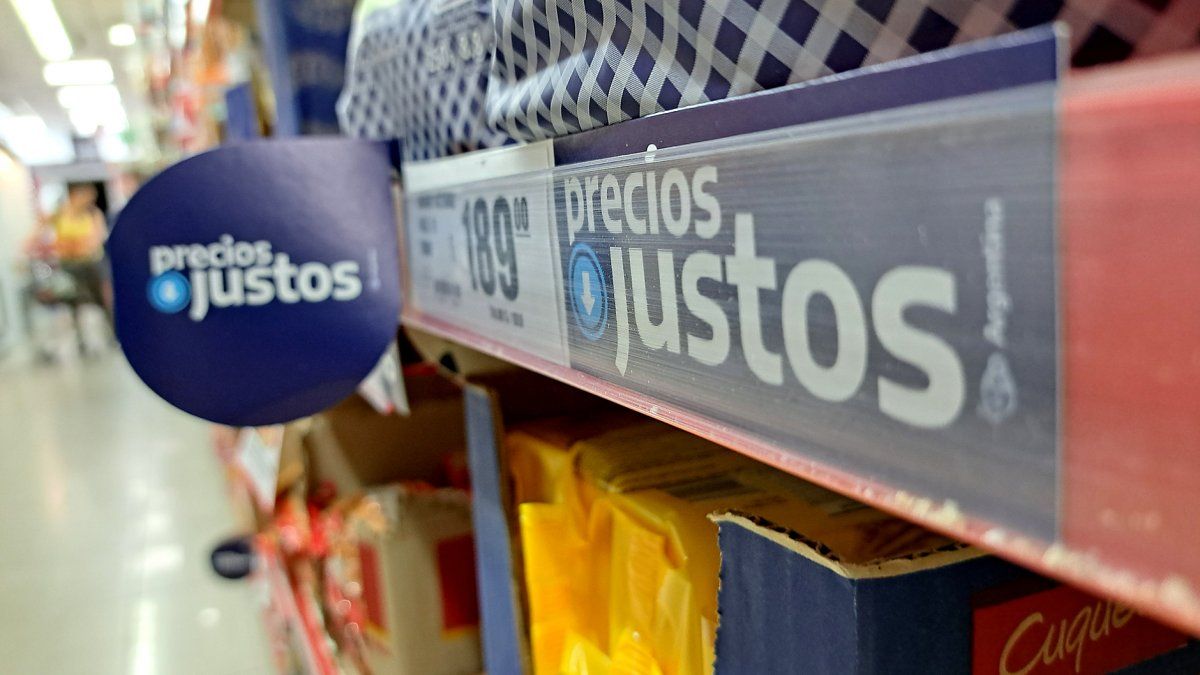March inflation could exceed 7%, according to consultants and the Ministry of Economy itself. Due to the drought, the immediate official objective became “stabilizing it”.
With the disordered macroeconomic variables, they aim to take care of basic consumption, through the current price agreements in supermarkets, such as Fair Prices. In March, these regulated products on shelves rose 3.2%, half that of inflation, and the Government tries to contain the pressure from the companies, which ask to renegotiate. In April they could enable increases in specific products.
“Price agreements better than this cannot work,” a high source from the Ministry of Economy assured Ámbito. In the Ministry of Commerce, headed by Matías Tombolini, they developed a panel that relieves the daily monitoring of the prices of more than 12,000 products and 3.7 million prices in large supermarket chains. Thus they can observe the fulfillment of the program, which is in a 70% and deviations, at 3.48%.
The tool revealed that in March the price basket in supermarkets, made up of food, beverages, cleaning articles and perfumery registered an increase of 3.2% compared to the previous month in the AMBA. It is a basket of 1972 products representative of family consumption that are obtained through the Electronic System of Advertising of Argentine Prices (SEPA). Meanwhile, the item of food and non-alcoholic beverages had a variation in March of the 3.4%when in February it had been 5%.
the heading meat registered a higher increase, of 6.5%, and fruit of 5%. For April they will relaunch a small basket of these goods with a regulated price, according to seasonality. Within the framework of Fair Prices, there are almost 2,000 products that remain frozen until June, and 30,000 that have a 3.2% monthly increase limit.
However, inflation in March exceeded 7%, driven by items such as clothing, education and health. At the Secretary of Commerce they know that the program loses “legitimacy” with consumersbut they seek to protect the consumption of essential products, in a context of accelerating inflation.
With the prices regulated by the agreements rising to less than half that of inflation, businessmen are already asking to renegotiate Fair Prices. “They are asking for it all the time, but we are not going to give in,” said sources from the Ministry of Commerce. Since the program was launched in February, there have already been meetings with more than 300 companies, which are held on the ninth floor of the former Ministry of Productive Development, where compliance with the agreement is reviewed. There are 600 agreements signed, with 47 different model agreements.
In any case, as Ámbito learned, In April, increases outside of what was signed in the program will be enabled. They will be “punctual” increases in some products where companies show very strong increases in costs.
In addition, in the Government they know that food has as “scape valve” the increases in regulated products on the lists that pass to local businesses. “The limit of the Fair Prices tool is 50% of the informal economy. It is impossible to get there with the control, if they do not even make you an invoice ”, They explained from the Government. This shows the changes in consumption habits that consultancies such as Scentia reveal: in the first two months of 2023, consumption fell 1.4%. But, if it is compared by channel, in supermarkets it collapsed 9%, and in supermarket chains it rose 8% year-on-year.
In the Secretariat of Commerce they celebrate the work they carried out in punitive matters: in one semester, from October to March 2023, they carried out 128,975 inspections, 4,548 violations were filed and fines climbed to $2,711 million. In the 3 years of previous Commerce efforts, the fines had climbed to $1,859 million.
When asked by this newspaper whether they regret not having applied a stabilization plan when Sergio Massa took office as the Ministry of Economy, something that was on the table last September, the answer is that a more gradual strategy was chosen at that time. , in a scenario where it was not on the horizon “worst drought of the century”.
Although officially Massa does not publicly give a number of losses, official sources speak of a drop in exports of around $20 billion. “The objective now is to stabilize, the drought is a bomb, but the States do not go bankrupt, so in the future it is not impossible to lower inflation,” said an official source.
private surveys
Private consultants such as LCG recorded that the food and beverage index presented an end-to-end inflation of 4.5% in March compared to February. “For the fifth consecutive week, average monthly inflation slowed down and stood at 4.7%,” says the report. It led bakery products, cereals and pasta (+8.7%) and meat (+4.3%) in the items with the highest incidence. In addition, the index shows that meat still lacks a 9.5% rise to reach the average for the rest of the foods.
Source: Ambito




